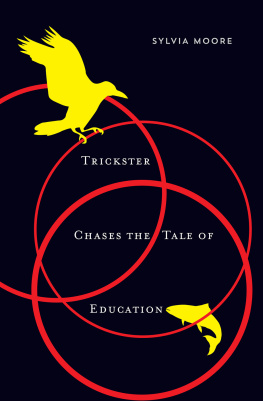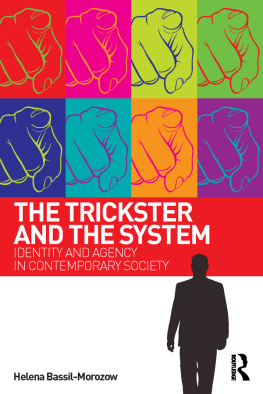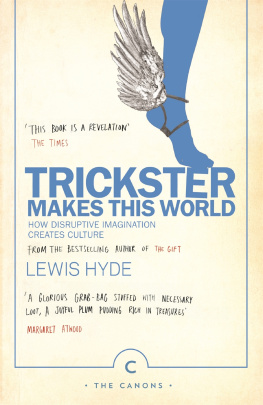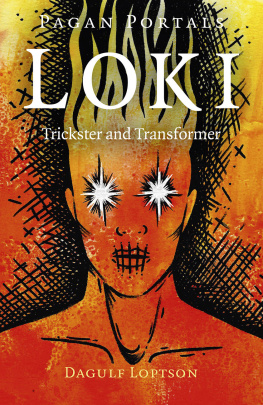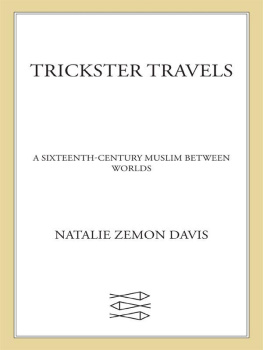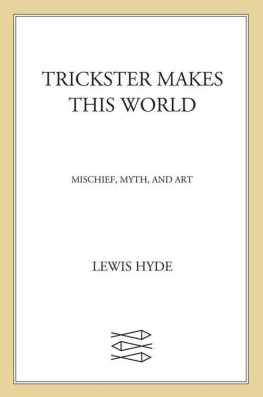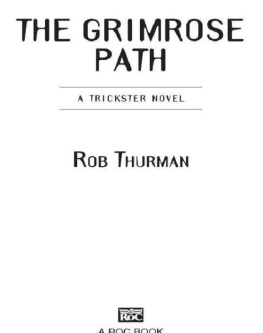ROUTLEDGE LIBRARY EDITIONS: FOLKLORE
Volume 6
EWE COMIC HEROES
EWE COMIC HEROES
Trickster Tales in Togo
ZINTA KONRAD
First published in 1994
This edition first published in 2015
by Routledge
2 Park Square, Milton Park, Abingdon, Oxon, OX14 4RN
and by Routledge
711 Third Avenue, New York, NY 10017
Routledge is an imprint of the Taylor & Francis Group, an informa business
1994 Zinta Konrad
All rights reserved. No part of this book may be reprinted or reproduced or utilised in any form or by any electronic, mechanical, or other means, now known or hereafter invented, including photocopying and recording, or in any information storage or retrieval system, without permission in writing from the publishers.
Trademark notice: Product or corporate names may be trademarks or registered trademarks, and are used only for identification and explanation without intent to infringe.
British Library Cataloguing in Publication Data
A catalogue record for this book is available from the British Library
ISBN: 978-1-138-84217-5 (Set)
eISBN: 978-1-315-72831-5 (Set)
ISBN: 978-1-138-84270-0 (Volume 6)
eISBN: 978-1-315-73135-3 (Volume 6)
Publishers Note
The publisher has gone to great lengths to ensure the quality of this reprint but points out that some imperfections in the original copies may be apparent.
Disclaimer
The publisher has made every effort to trace copyright holders and would welcome correspondence from those they have been unable to trace.
EWE COMIC HEROES
Trickster Tales in Togo
Zinta Konrad
1994 Zinta Konrad
All rights reserved
Library of Congress Cataloging-in-Publication Data
Konrad, Zinta.
Ewe comic heroes : trickster tales in Togo / Zinta Konrad.
p. cm. (The Albert Bates Lord studies in oral tradition : vol. 9) (Garland reference library of the humanities ; vol. 1020)
Includes bibliographical references.
ISBN 0-8240-7639-7 (alk. paper)
1. Ewe (African people)Folklore. 2. TricksterTogo. 3. Oral traditionTogo. 4. TalesTogo. I. Title. II. Series. III. Series: Garland reference library of the humanities ; vol. 1020.
GR351.52.E83K65 1993
398.21'089'963374dc20
93-34584
Printed on acid-free, 250-year-life paper
Manufactured in the United States of America
Maniem miem veckeimbez kuru atbalstu is darbs nebtu iespjams.
Contents
The purpose of the Albert Bates Lord Studies in Oral Tradition, in conjunction with the journal Oral Tradition, is to bring before an interdisciplinary constituency essays, monographs, and collections that, in focusing on one or more oral or oral-derived traditions, offer insights that can be useful for investigators in many of the more than one hundred language areas now influenced by this field. Thus earlier volumes have treated orality and the Hebrew Mishnah (Jacob Neusner), Beowulf and shamanism (Stephen Glosecki), Hispanic balladry (Ruth Webber, editor), the Count Claros ballad tradition (Judith Seeger), the Middle English romances (Murray McGillivray), Marcel Jousses The Oral Style (Edgard Sienaert and Richard Whitaker, translators), Turkic oral epic (Karl Reichl), and Beowulf and the Bears Son (J. Michael Stitt). Future volumes in this series will include studies of identification in Homeric epic (Carolyn Higbie) and of the Brother Peter folktale tradition in Guatemala (Jane Frances Morrissey and Christina Canales), as well as collections of essays on oral traditions in ancient and medieval contexts. The overall aim is to initiate and to sustain conversations among scholars who, because of the categories according to which we are segregated in modern academia, seldom if ever have a chance to talk to one another. With this goal in mind, we extend a warm invitation to new voices to join the conversationboth as readers of these and other volumes and, hopefully, as authors with contributions to the ongoing discourse.
This ninth volume in the series, Ewe Comic Heroes by Zinta Konrd, is an especially distinguished piece of work. True to the scholarly imperative that informed Albert Lords own career, this research begins in personal experience of an oral tradition and proceeds through an exceptionally well-documented and thorough analysis toward an in-depth portrayal of that tradition. In Konrads case, the body of performance consists of trickster tales principally from southern Togo, with a small sampling from the contiguous Ewe population in Ghana. As she explains in the introduction and her opening chapter on the collection, she gathered some 400 of these tales in 1979-80, eventually selecting 30 of them for the exposition offered below.
These stories are of unusual significance for at least three reasons. First, they provide a window into the totality of oral expressive forms among the Ewe, constituting as they do a species of gliwo, which Konrad translates as oral expressive narratives. Second, they serve the overall purpose of the Lord series by providing another perspective on the infinitely various phenomenon we inadequately call oral tradition, helping to pluralize our notions at the same time as they provide an analogy for expressive forms from other cultures. Third, the Togo tales make an important contribution to the international scholarship on the trickster figurethat ubiquitous hero, coward, mediator, and thief whose contradictory exploits range far and wide throughout the worlds traditions, and whom Konrad tellingly designates a metaphor for pure possibility (). In support of this third dimension, the book contains a seventh chapter that considers some of the aspects of and explanations for the popularity of this fascinating figure.
Much more could be said about this remarkable book. In addition to the uniqueness of the material (with the thirty performances transcribed and/or translated in the appendix to the volume), notes on its collection, a discussion of a semiotic methodology, and not least the authors careful and creative attention to nonverbal aspects of performance, it provides a model for future work in this and other specialties. For Africanists and folklorists, as well as scholars and students in many different areas, Ewe Comic Heroes will stand as a landmark study in oral tradition.
John Miles Foley
Center for Studies in Oral Tradition
University of Missouri
Virtuous and vicious every man must be
Few in th extreme, but all in the degree;
The rogue and the fool by fits is fair and wise
And evn the best, by fits, what they despise.
Alexander Pope
What more exciting topic than that which speaks to the vicious and virtuous natures which lie inside all of us? So it is that the subject of this study, the trickster hero in Ewe oral narrative performances, was chosen.
The trickster character is prominent in the cultural, particularly narrative, traditions of many different peoples throughout the world. Ture, Gizo, Wanto, Ananse, Wadjakunga, Velniare all examples of the many different cultural representations of the trickster figure. Comic and serious, stupid and clever, benevolent and evil, winner and loserthe trickster is a study in contradictions. The trickster cannot be pigeonholed, for he does not fit into any neat categories or definitions. The best way to learn about trickster is to observe him and experience him.


